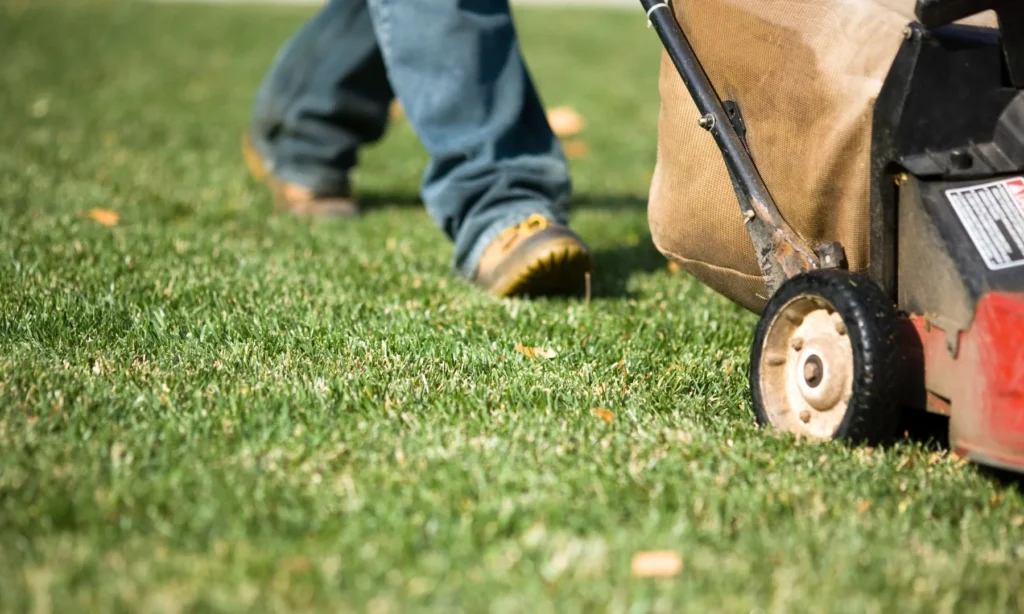We often get questions from landlords about who is responsible for the maintenance of the lawn, garden, and pool of a rental property. While the tenancy agreement includes the Residential Tenancy Act’s clauses relating to maintenance and care of the property, you might be interested to know the typical rules and guidelines around this topic.
The maintenance of a rental property is a responsibility both the landlord and the tenant share. While some day-to-day tasks sit within the tenant’s scope, there are a few that the landlord must stay on top of. In this article, we’ll explore a few of the common grey areas and share insights as to who should manage which.
To determine who’s responsible for which task, you first need to know your legal obligations and understand that good maintenance will help to preserve your rental property’s value long-term.
Tenant maintenance responsibilities
All New Zealand tenants must abide by the rules outlined in the Residential Tenancies Act 1986 (RTA), including taking responsibility for the following:
Keeping the property reasonably tidy
During the tenancy, tenants are expected to complete regular tasks to keep the property in order. This often includes simple tasks such as mowing the lawn, changing pool filters, section care, and weeding the garden. If the landlord prefers to complete these tasks themselves or hire a contractor, this must be specified in the tenancy agreement.
Alert the landlord about repairs
When something outside the tenants’ maintenance duties is in need of repair, they must notify the landlord in a timely manner. While they are not expected to complete repairs themselves, they must give the landlord reasonable notice to arrange the repair before more damage occurs. Examples of these repairs could include damage to a fence, gate, pool lining, or deck.
Manage hazards where possible
While the landlord is ultimately responsible for ensuring the property is safe, tenants must do their part too. Tenants should take immediate action if there is a threat to anyone’s safety, as long as it does not put them at risk to mitigate it. This could include removing obstacles from pool areas, closing pool covers when not in use, and keeping children away from collapsing fences. Until the landlord can complete any repairs, the tenants must act responsibly and keep a safe distance.
Leave the property in a clean and tidy state
At the end of a tenancy, the RTA requires the property to be left in a reasonably clean and tidy condition, meaning that it must be free of damage, rubbish, and possessions. Taking into account fair wear and tear, the property should be comparable to the condition it was presented in at the beginning of the tenancy. This also implies that the tenant cannot make any permanent changes or cause any damage that will affect the value of the property.
In some cases, tenants may wish to make a minor change to the property like childproofing cupboards, installing a doorbell, or putting up a shelf in the laundry. Before going ahead, they must have written consent from the landlord. As the landlord, you can only withhold consent if it is reasonable to do so, so talk with your property manager for expert advice first.
Landlord maintenance responsibilities
In general, landlords hold more responsibility in terms of maintaining their rental property. This gives you as a landlord more control over how well your investment is cared for, helping to protect your investment. It is important to maintain the property to a good standard so your investment retains the best market rent and value as an asset.
Besides the basic tasks tenants are responsible for, such as lawns and pool filters, landlords are typically accountable for all major outdoor property maintenance.
Gardens
As the landlord, it is your responsibility to keep the section safe and liveable. That includes both regular and one-off tasks such as pruning trees, shrubs, and hedges, removing green waste, and ensuring dangerous branches are correctly removed. If you undertake pruning, cutting, or clipping work then you are responsible for the removal of the debris.
It’s a landlord’s responsibility to ensure trees found on the property are safe, this includes trees damaged in storms or that pose a hazard to power lines or a neighbouring property. Depending on the task, you may need to hire a professional such as an arborist or landscaper. Generally, a plant over 1.5 metres is the landlord’s responsibility.
Gates, fences, and drainage
The landlord is liable for the safety and security of the property, including the fences, gates, drainage, and guttering. It is the landlord’s responsibility to keep the gutters free from blockages to allow rainwater to drain properly. Attending to this job regularly will stop any water ingress into the house or roof space and reduce water pooling on the grounds.
Your neighbour might agree to share the cost of the new fence but the tenant should not be expected to pay for any repairs to the fencing unless the damage was caused by them. For example, if the fences and gates are damaged in a storm, the landlord will be required to fix them.
Pool maintenance
If your rental property has a swimming pool, you are held responsible for its adherence to safety regulations and completing the maintenance required to keep it that way. Tenants are usually required to change the filters and keep the water clean when in use but every other pool maintenance task falls to the landlord.
These include:
- Alerting the local council to the pool.
- Ensuring the pool barrier meets compliance requirements under the Building Act.
- Having a qualified inspector conduct an inspection every 3 years.
- Keeping all records of inspection, maintenance, and compliance.
It is important to include pool safety checks in all your property inspections to protect you and your tenants. These checks should identify any dangerous hazards, such as damage to the barrier or pool filter. For more information on pool maintenance, reach out to your local council or read the Building Act.
How to protect your investment
A rental property is an incredibly valuable asset so it is important to know how to keep it safe and ensure it retains its value. Fortunately, your property manager can guide you through the whole process.
Breaches of property maintenance law
If either you or your tenant fails to meet obligations regarding property maintenance, it could be a breach of tenancy law. If it is not handled well, the legal process can quickly become convoluted but with a property manager acting as mediator, you can have the peace of mind that your investment is in good hands.
The tenancy agreement
Every landlord and tenant relationship is different, which is why it is critical to have a clear understanding of what each of you expects. The tenancy agreement provides a neutral reference point for both parties to refer to when deciding who should complete a given task.
When it comes to maintaining the garden, lawn, and pool on the property, the tenancy agreement states who is responsible. In the case of a disagreement or dispute, the tenancy agreement will determine which course of action to take.
Budgeting for maintenance costs
Landlords are expected to pay for the repairs and maintenance of the property that has occurred through natural wear and tear. It is a good idea for a landlord to set a certain amount of money aside each month from the tenant’s rent so that you have enough money to pay for maintenance and repairs as the need arises. At McDonald Real Estate, we offer a maintenance management fund which sets aside a portion of the regular rental income to cover maintenance and unexpected issues that may arise.
For example, if you put aside an amount each month and the hot water cylinder bursts, your maintenance fund can be used to pay for or contribute to this substantial cost. Another tip is, that if the maintenance for the lawn and garden cost $30 a week and the pool care costs $20, you would factor the extra $50 into the rent. Remember, you can only change the rent price once every 12 months.
Your rental property should be a positive source of income, not a drain on your time and resources. For expert advice, local experience, and consistently superior service, McDonald Real Estate Property Management is a partner you can trust.
To get the most out of your investment property, while reducing the stress from tenancy grey areas, the first thing to do is contact us for a free appraisal.






